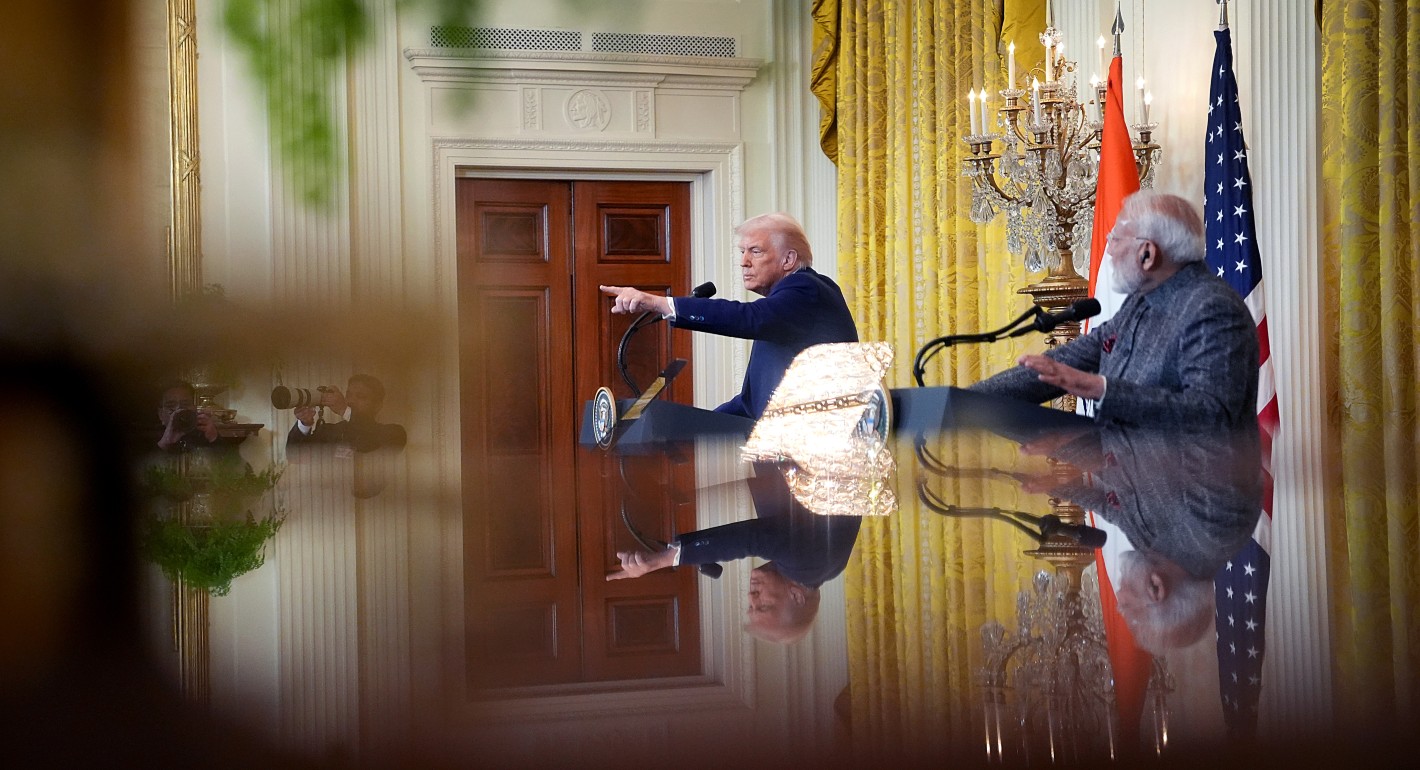Charles Krauthammer has been an influential columnist and longtime critic of
arms control and multilateral non-proliferation treaties. In February 2004, the
American Enterprise Institute will present Dr. Krauthammer, who "profoundly
influenced both American foreign policy doctrine and debate," with the Irving
Kristol Award for making "extraordinary intellectual or practical contributions
to improved government policy, social welfare, or political understanding."
Those who support and want to reinforce the non-proliferation regime have a responsibility
to understand the criticisms of the regime. Below are excerpts from two of Krauthammer's
articles that AEI cites as highlights of his writing:
"At the dawn of the 21st century, the task of the new administration is
to develop a military and foreign policy appropriate to our position of overwhelming
dominance. In its first four months in office, the Bush administration has begun
the task: reversing the premises of Clinton foreign policy and adopting policies
that recognize the new unipolarity and the unilateralism necessary to maintain
it."
"[W]hat [Bush] proposed was a radical new nuclear doctrine: the end of
arms control. Henceforth, the United States would build nuclear weapons, both
offensive and defensive, to suit its needs - regardless of what others, particularly
the Russians, thought. Sure, there would be consultation - no need to be impolite.
Humble unilateralism, the oxymoron that best describes this approach, requires
it: Be nice, be understanding. But, in the end, be undeterred."
"By summarily rejecting Kyoto, the Bush administration radically redefines
the direction of American foreign policy: rejecting the multilateral straitjacket,
disenthralling the United States from the notion there is real safety or benefit
from internationally endorsed parchment barriers, and asserting a new American
unilateralism."
"Multipolarity, yes, when there is no alternative. But not when there
is. Not when we have the unique imbalance of power that we enjoy today - and
that has given the international system a stability and essential tranquility
it had not known for at least a century."
"Unlike other hegemons and would-be hegemons, we do not entertain a grand
vision of a new world . . . we are essentially a status quo power. We have no
particular desire to remake human nature, to conquer for the extraction of natural
resources, or to rule for the simple pleasure of dominion . . . Our principal
aim is to maintain the stability and relative tranquility of the current international
system by enforcing, maintaining, and extending the current peace."
"[One of our goals is] to maintain the peace by acting as the world's
foremost anti-proliferator. Weapons of mass destruction and missiles to deliver
them are the greatest threat of the 21st century. Non-proliferation is not enough
. . . It may become necessary in the future actually to preempt rogue states'
weapons of mass destruction, as Israel did in 1981 by destroying the Osirak
nuclear reactor in Iraq."
"Preemption is, of course, very difficult. Which is why we must begin
thinking of moving to a higher platform. Space is the ultimate high ground.
For 30 years, we have been reluctant even to think about placing weapons in
space, but it is inevitable that space will become militarized. The only question
is: Who will get there first and how will they use it? The demilitarization
of space is a fine idea and utterly utopian. Space will be an avenue for projection
of national power as were the oceans 500 years ago."
"[O]verwhelming American power is good not just for the United States
but for the world. The Bush administration is the first administration of the
post-Cold War era to share that premise and act accordingly. It welcomes the
U.S. role of, well, hyperpower. In its first few months, its policies have reflected
a comfort with the unipolarity of the world today, a desire to maintain and
enhance it, and a willingness to act unilaterally to do so. It is a vision of
America's role very different from that elaborated in the first post-Cold War
decade - and far more radical than has generally been noted."
"[D]emocracy can be imposed by force, as both Germany and Japan can attest.
But those occurred in the highly unusual circumstance of total military occupation
following a war for unconditional surrender. Unless we are willing to wage such
wars and follow up with the kind of trusteeship we enjoyed over Germany and
Japan, we will find that our interventions on behalf of democracy will leave
little mark, as we learned with some chagrin in Haiti and Bosnia…"
- (Weekly Standard, 4 June 2001)
"Why should the United States take seriously, morally seriously, as Americans
do, the pronouncements and decisions of that preeminent international governor,
the U.N. Security Council?"
"The problem with contemporary liberalism is that it believes this nonsense.
It sincerely believes that multilateral action-and, in particular, action blessed
by the U.N.-is in and of itself morally superior to, and more justifiable than,
the United States unilaterally asserting its own national interest."
'It is hard to think of an administration in American history with a greater
mania for writing, signing, ratifying, and producing international agreements
than the Clinton administration. From the very beginning, its principal foreign
policy goal has been to secure signatures on a dizzying array of treaties on
chemical weapons, biological weapons, nuclear testing, nuclear nonproliferation,
and anti-ballistic missiles. (And, if not for Pentagon pressure, it might even
have signed the disastrous treaty banning land mines.)" - (New Republic,
15 March 1999)








